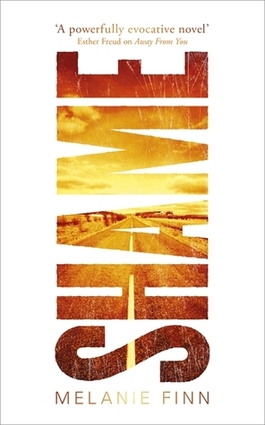
It’s as dismal picture of Africa as depicted in Christopher Hope’s Jimfish, as far from the tourist safaris as one might get, with an element of magical menace thrown in, in the form of the discovery of a box of albino body parts that even terrorise Dr Dorothea. Gamely, Pilgrim offers to take them away and moves on to Tanga on the coast, where she meets fellow American Gloria who is channelling her grief at the death of her own wayward son into creating a home for AIDS orphans. Gloria seems keen to help Pilgrim, until she discovers what she’s done. Once again, the supernatural element creeps in as Pilgrim is confronted by a fragment of fabric from the dead girl’s dress in a local shrine. Is someone trying to frighten her or is this more dark magic at work?
I found this an engaging, engrossing and disturbing “grown-up” novel, somewhat reminiscent of JM Coetzee’s Disgrace (which I’m about to reread for my book group) in its themes of white guilt and shame alongside black violence linked to poverty. But it’s a hard one to review as I’m not sure I really understand what it’s about! It’s extra complicated by the move away from Pilgrim’s personal story in the second half to follow the perspectives of various other characters whose lives have intersected with hers. It’s a structure that would be frowned upon in creative writing courses – and I personally wouldn’t generally appreciate that belated switch in point of view – but it works here, especially as, through these other characters, Pilgrim’s fate unfolds.
But this wider perspective shows us that the shame is not only Pilgrim’s but belongs to all of us in the privileged west. Perhaps this is most clearly expressed by a very minor character, the police inspector’s wife (p222):
Ingrid had recently told him that horror was inconvenient, coming at you on the TV news before dinner. You resent it, she’d said, and you feel bad resenting it, and wonder what you should do to not feel bad. But the only solution is to undergo some kind of fundamental change in how you live your life, to become a doctor with Médecins Sans Frontieres or a social worker for abused kids. At least stop buying goods made in Chinese sweatshops. It’s so big, she’d continued, so impossible and awkward, and the easiest thing – therefore – is to feed the cat instead or make a note to buy more washing powder. And we always do the easiest thing, don’t we?
Faced with these dilemmas, there appear to be only three roles available: victim, perpetrator and rescuer. As we cycle between them, they seem to merge into each other, as if they’re all the same. Shame is Melanie Finn’s second novel (appearing eleven years after her debut and one, I’m sure her fans would agree, well worth waiting for) published by Weidenfeld and Nicholson from whom I received my review copy. It’s a powerful book I’d heartily recommend.





















 RSS Feed
RSS Feed





















